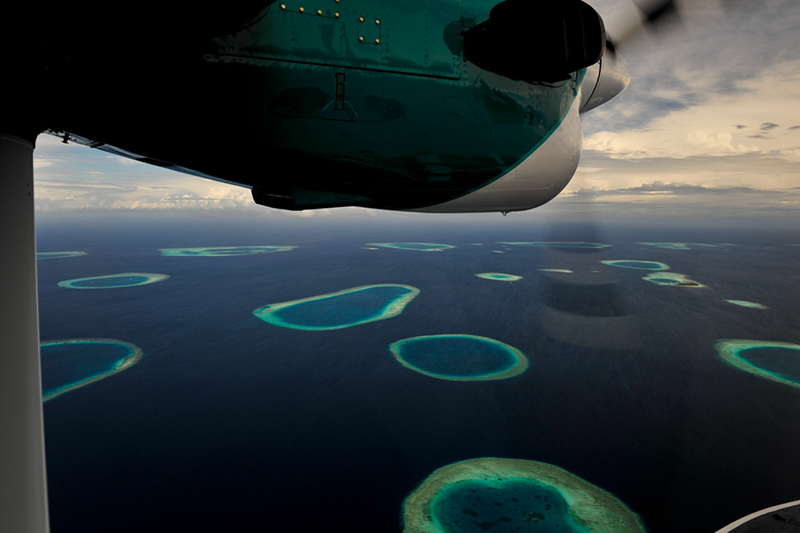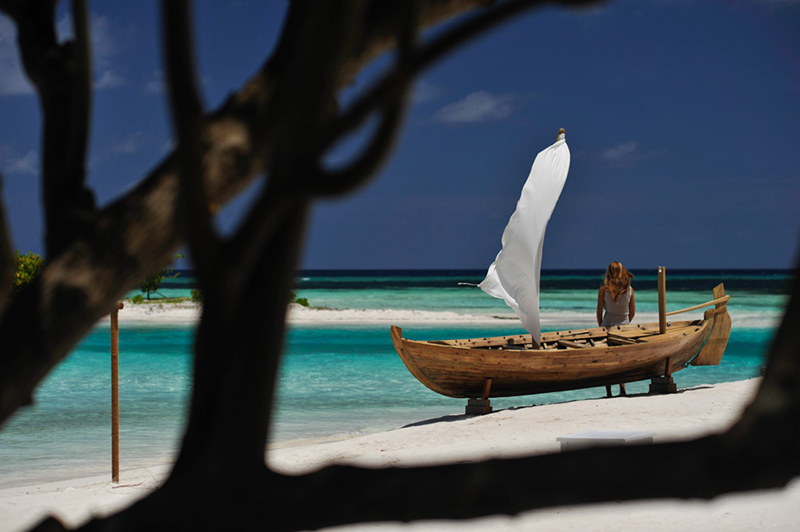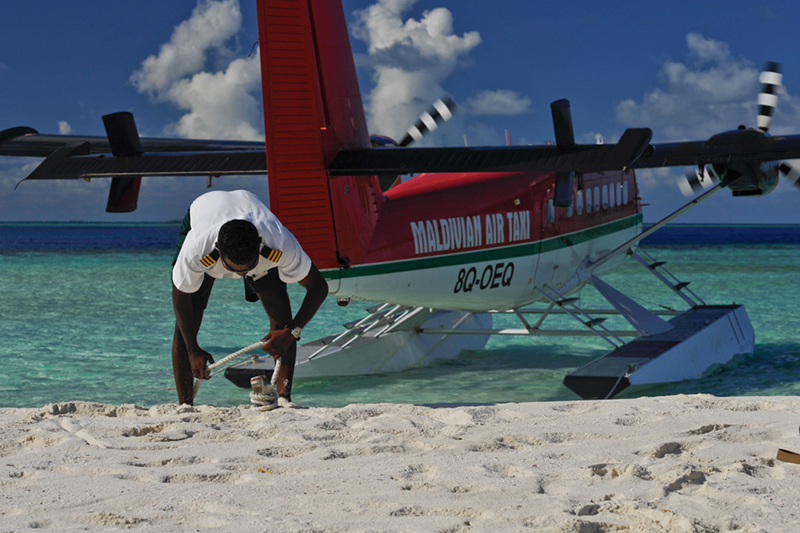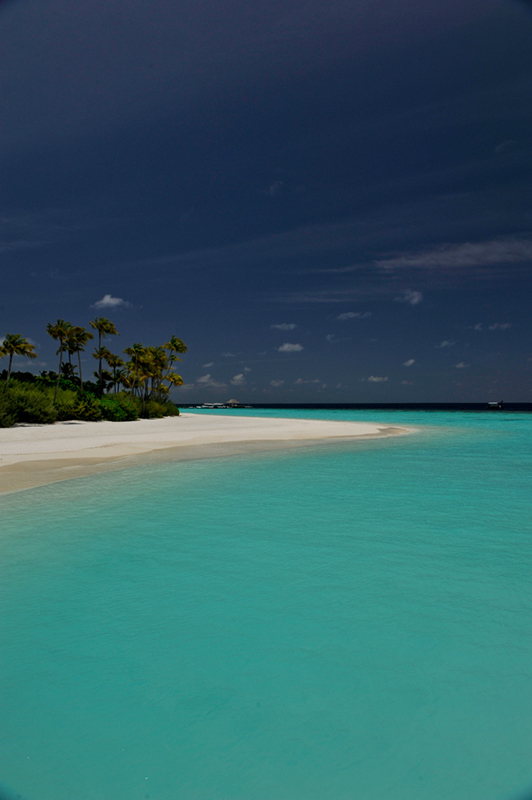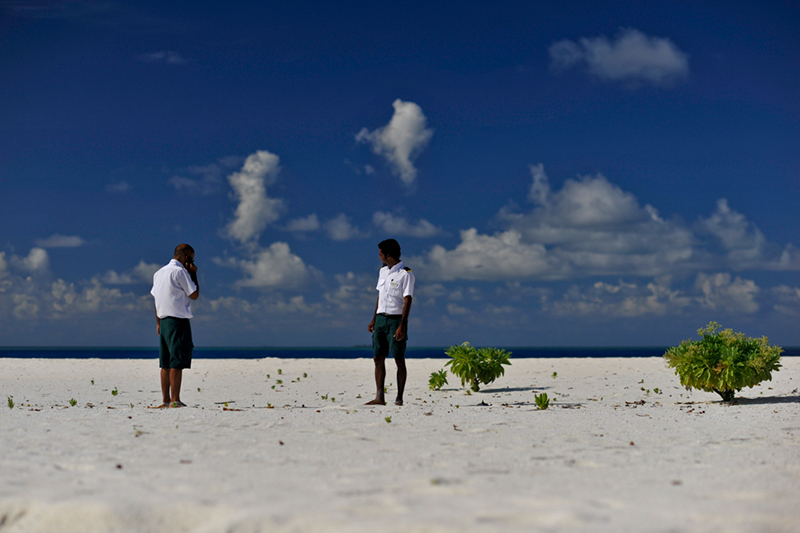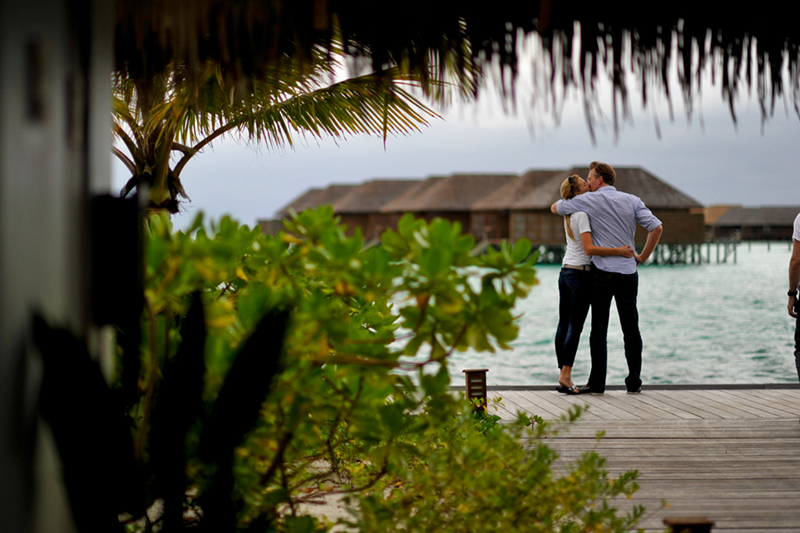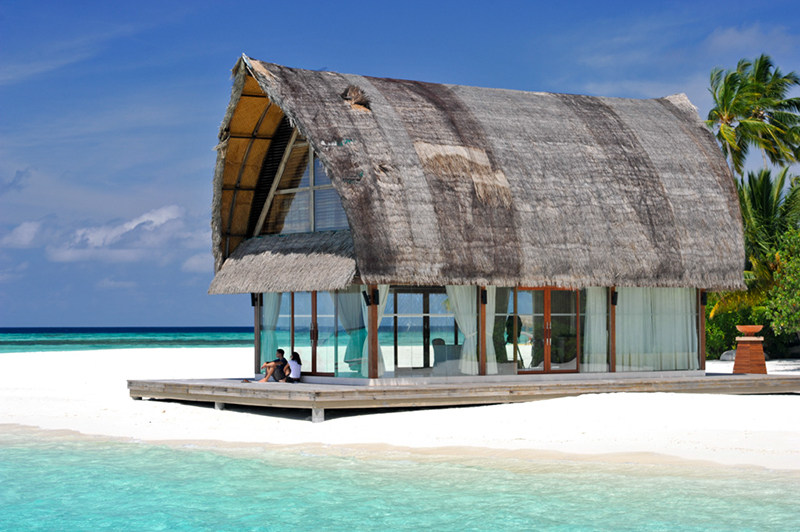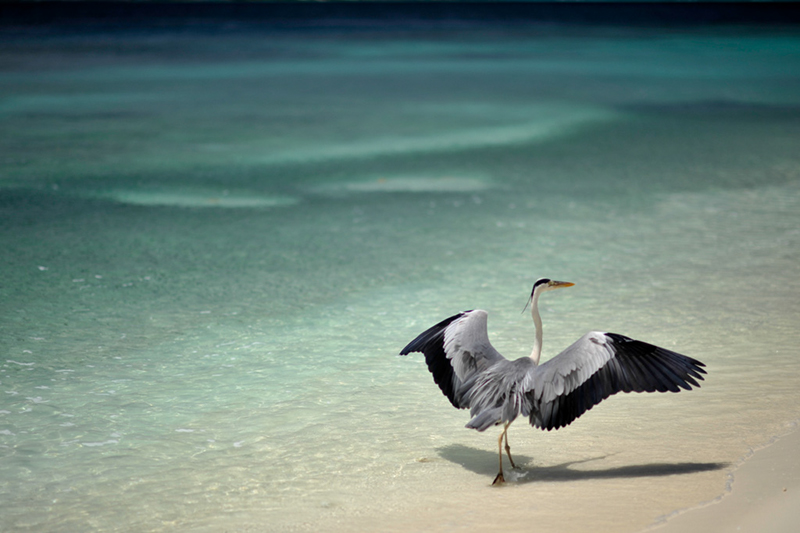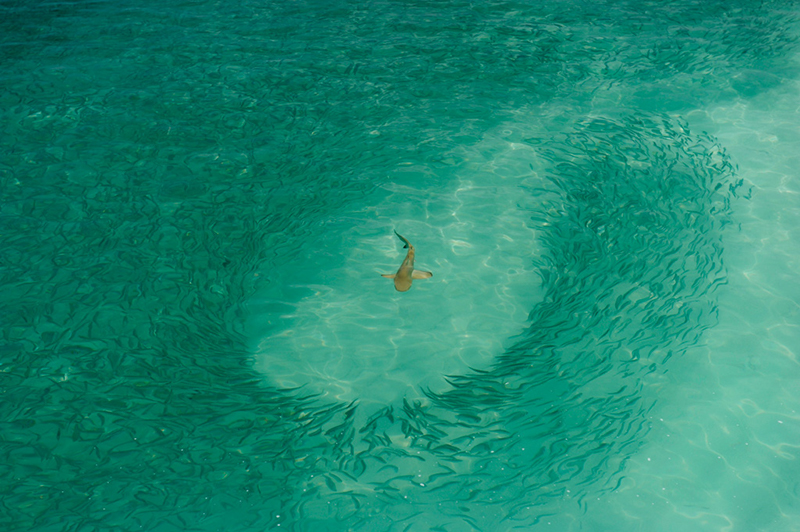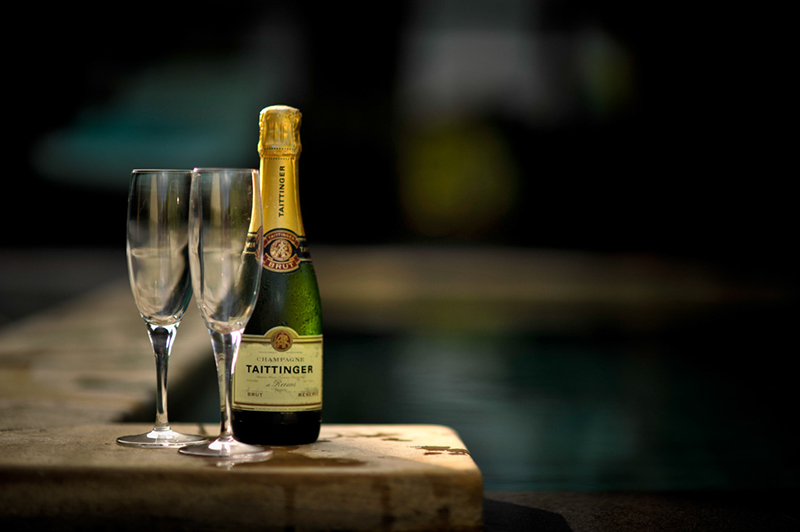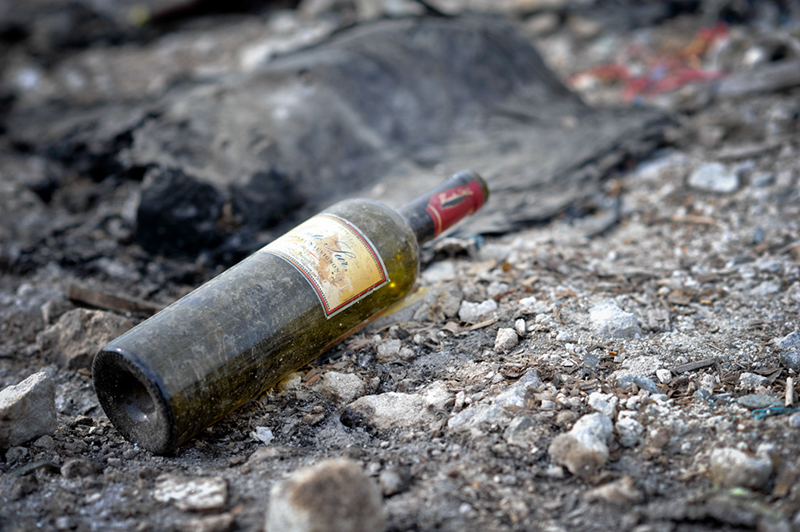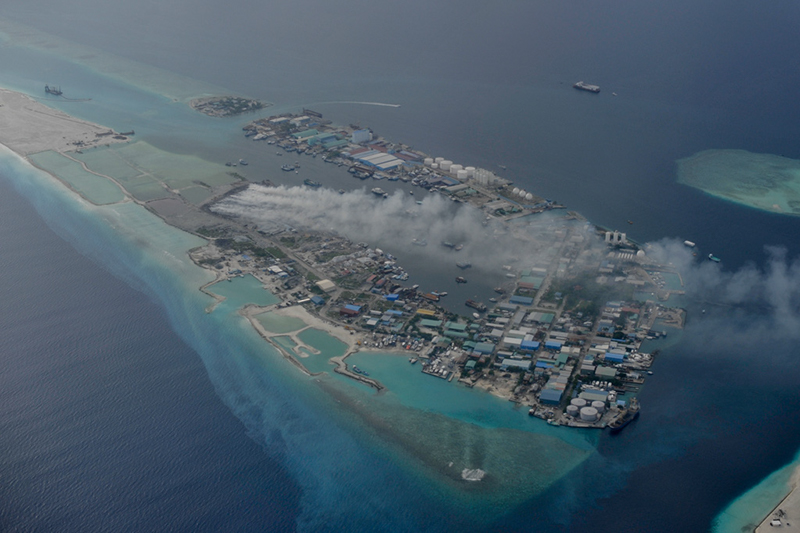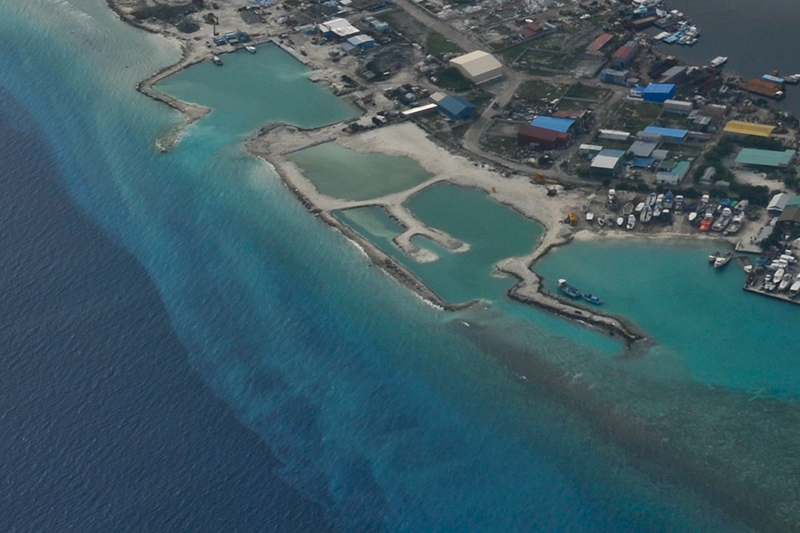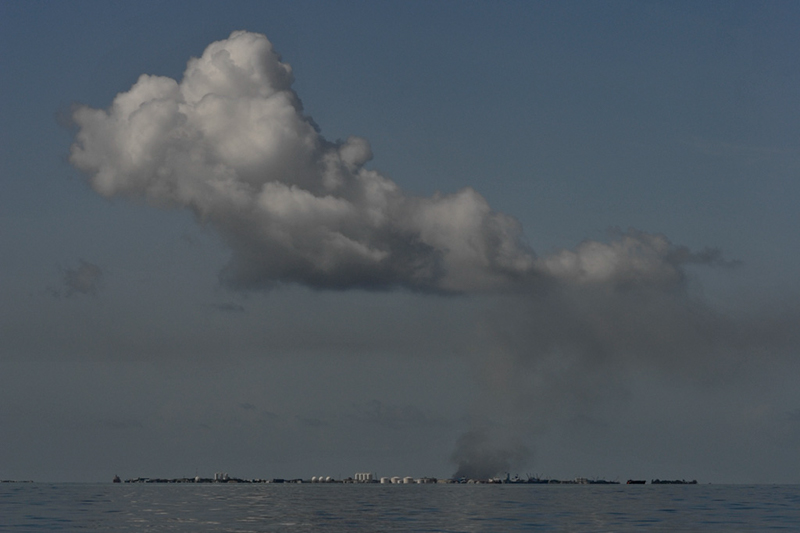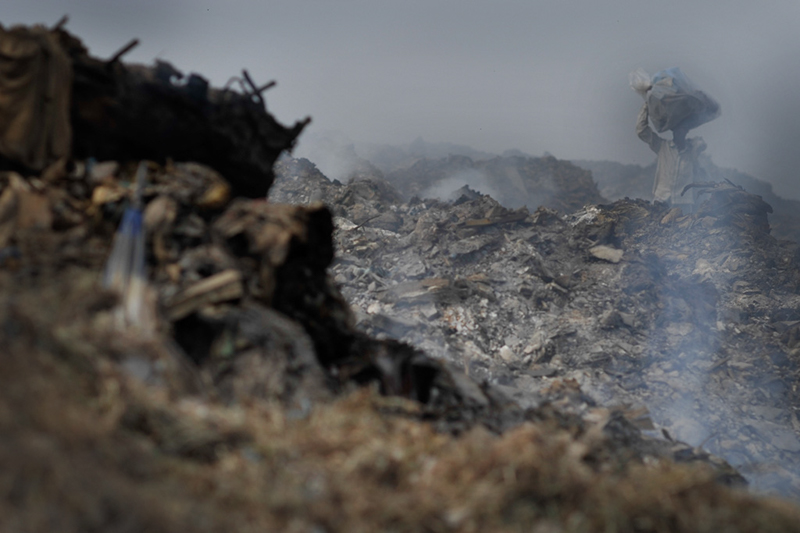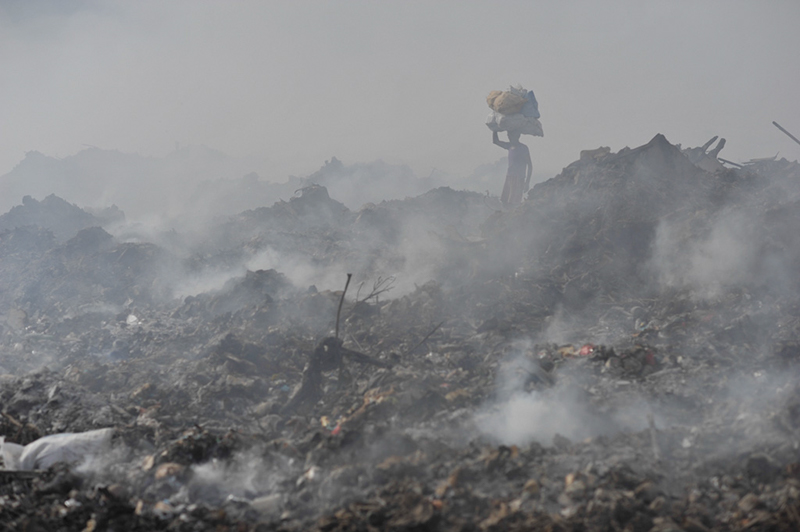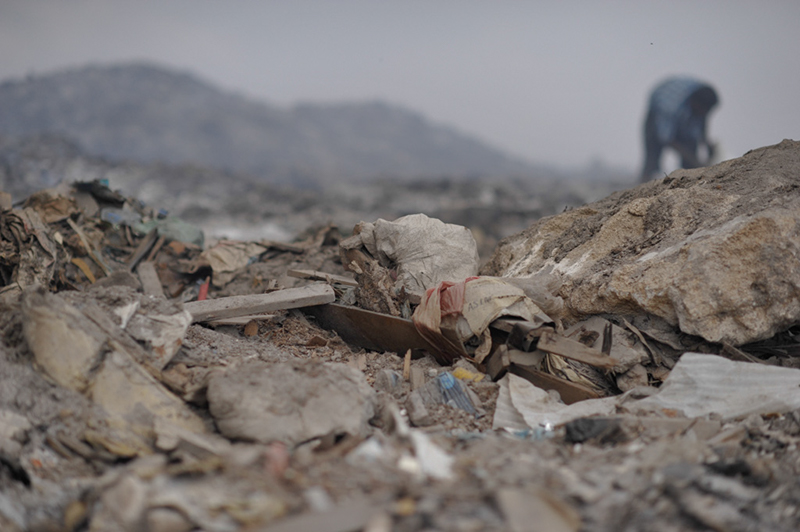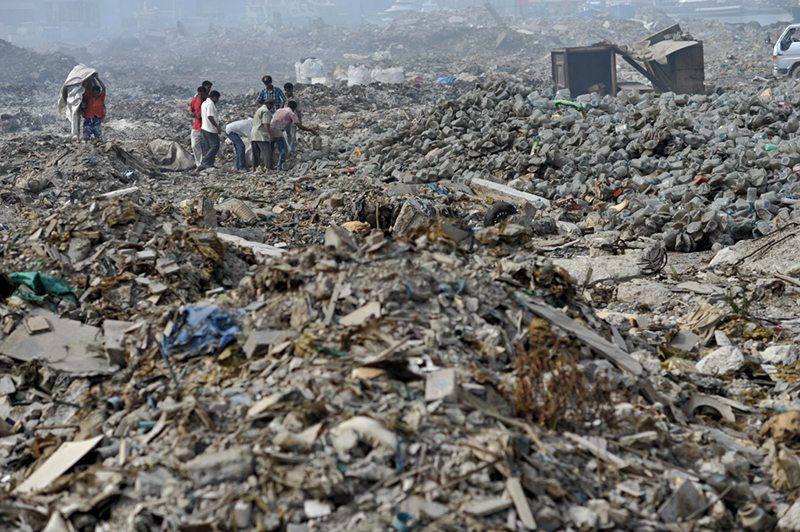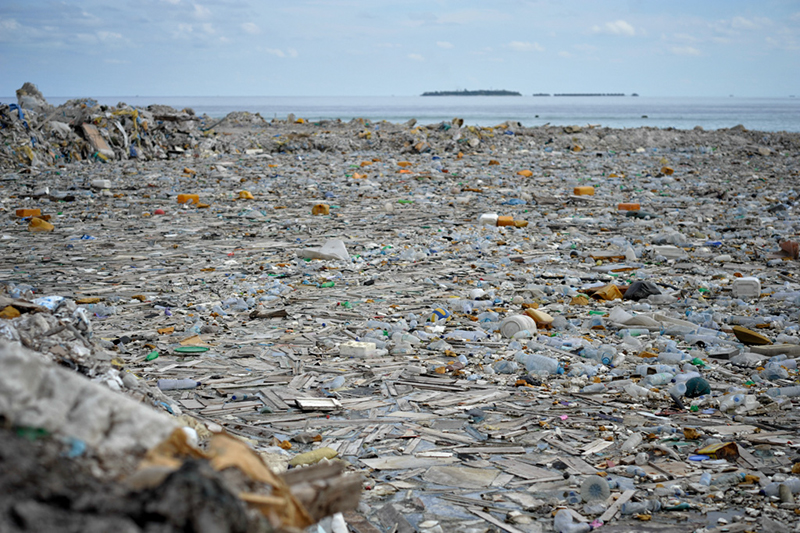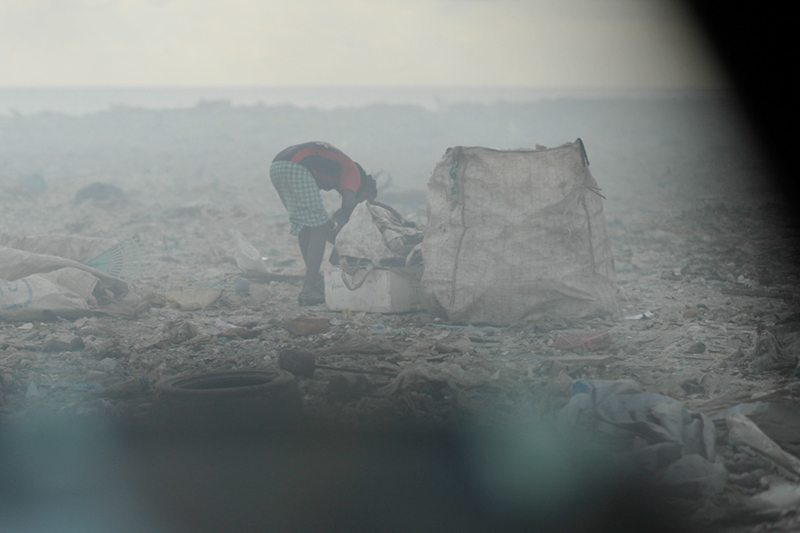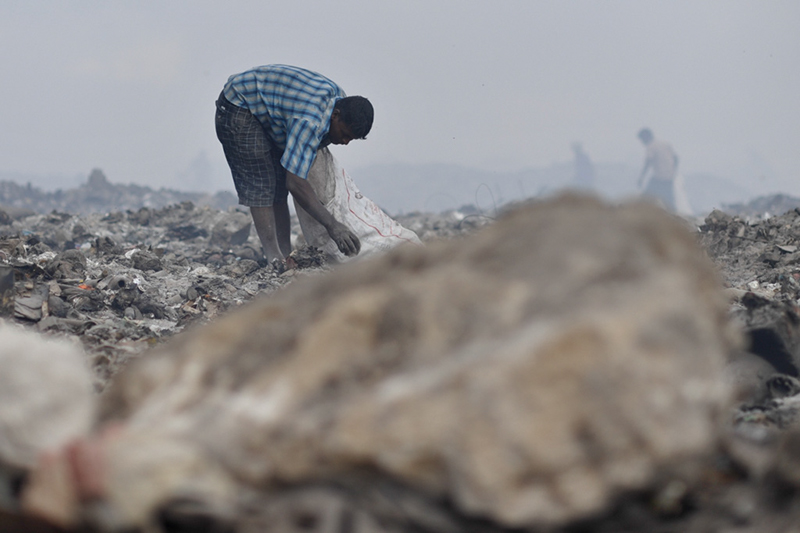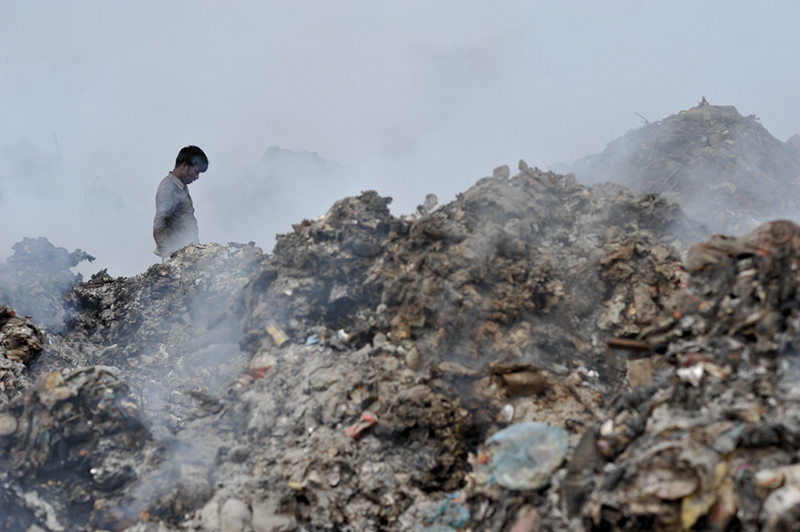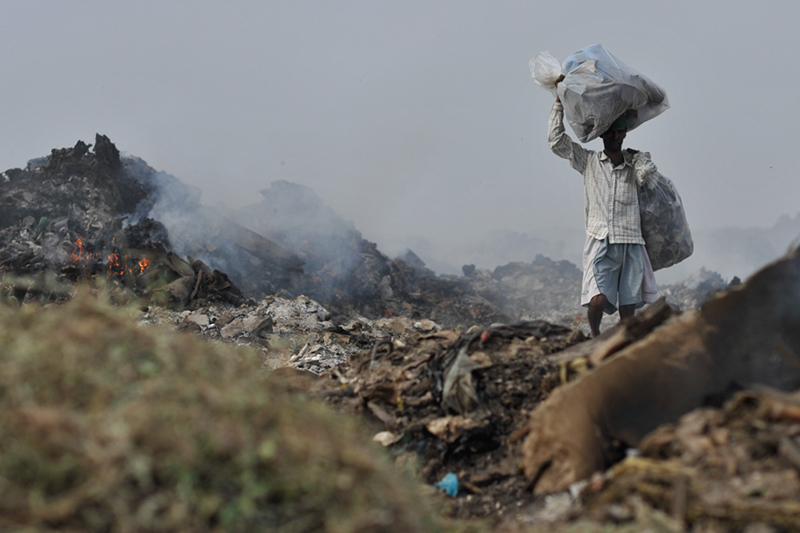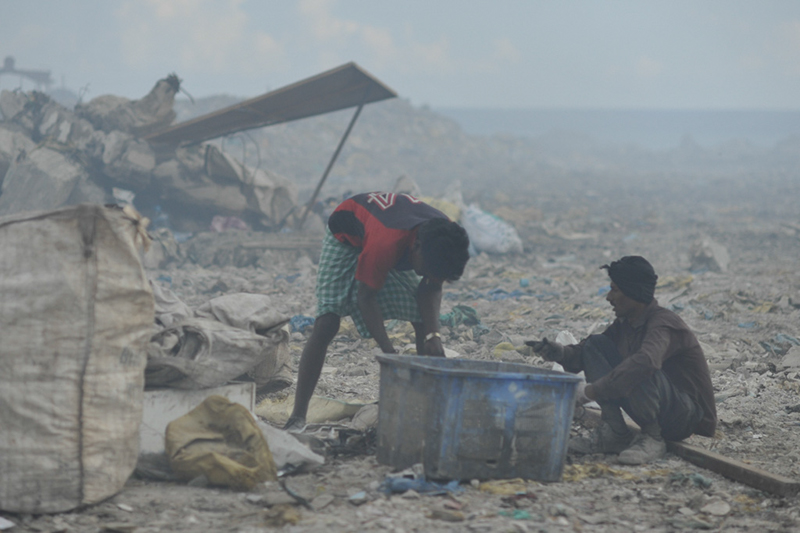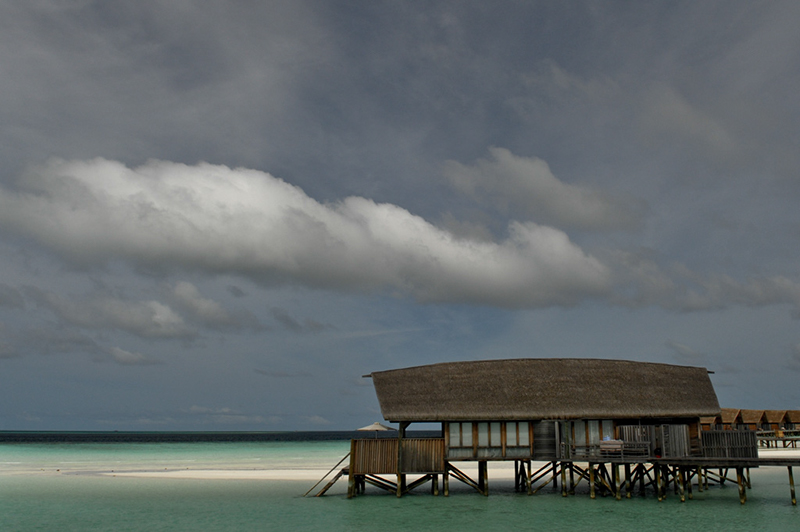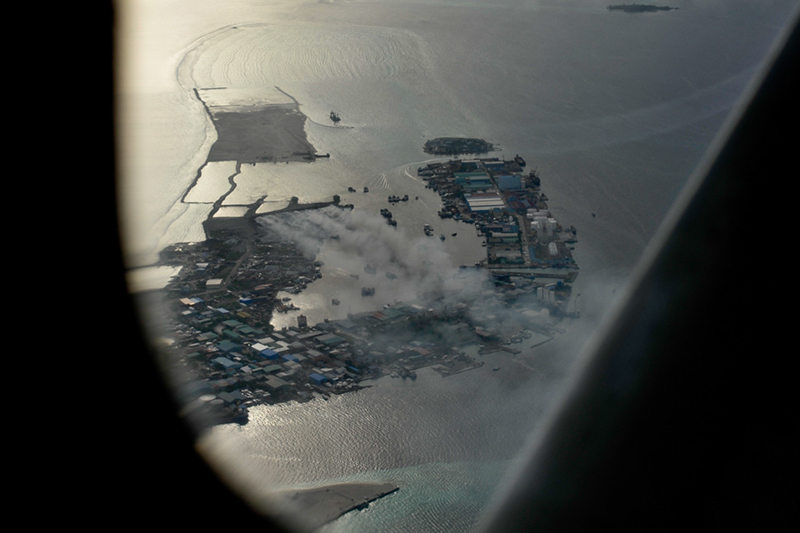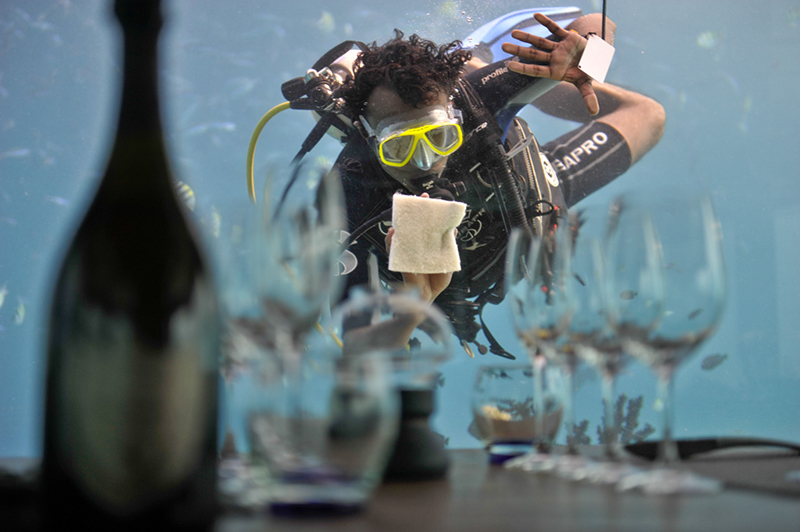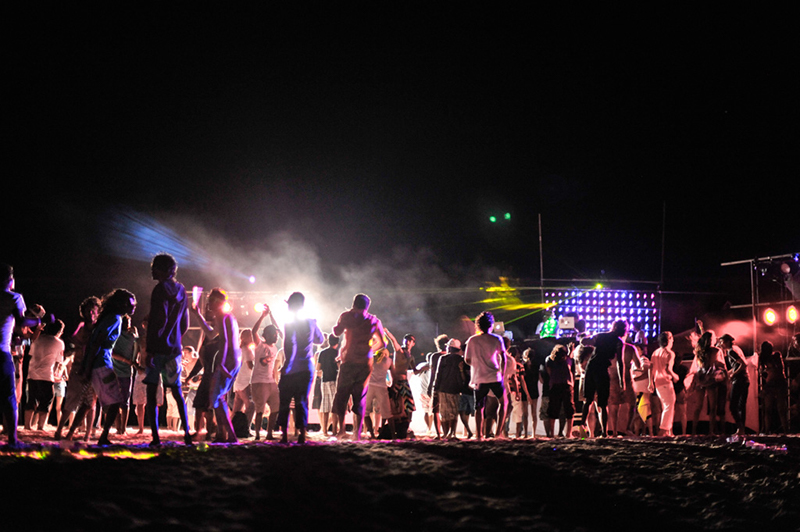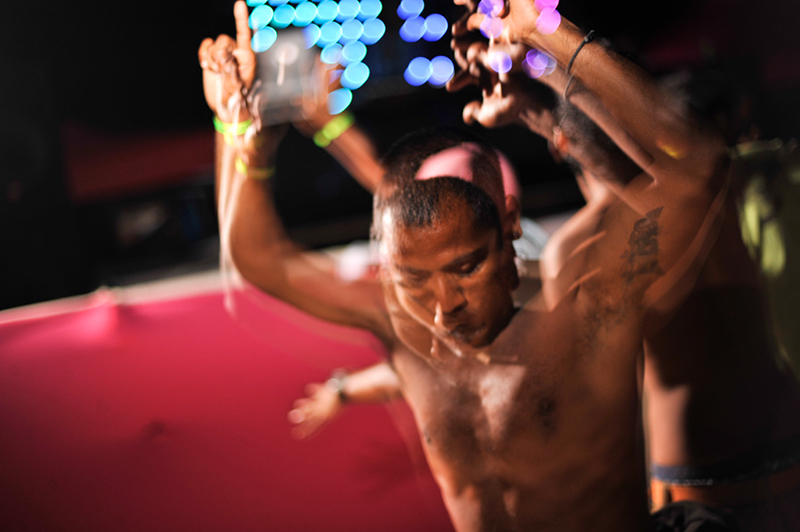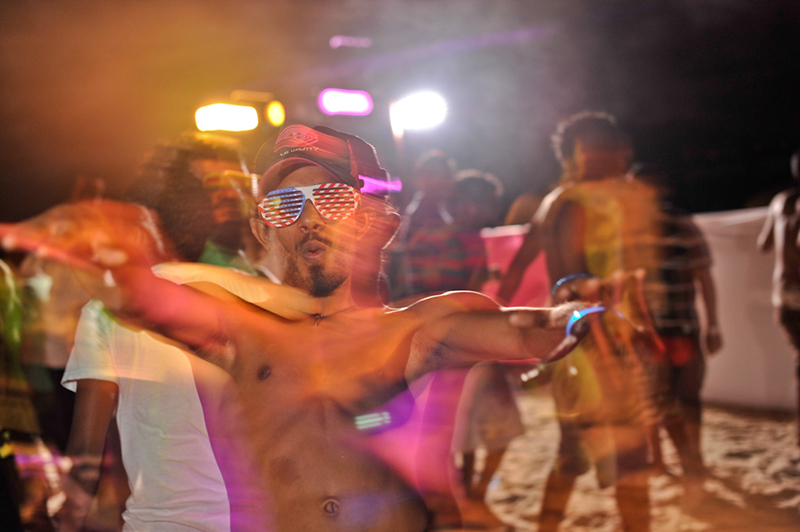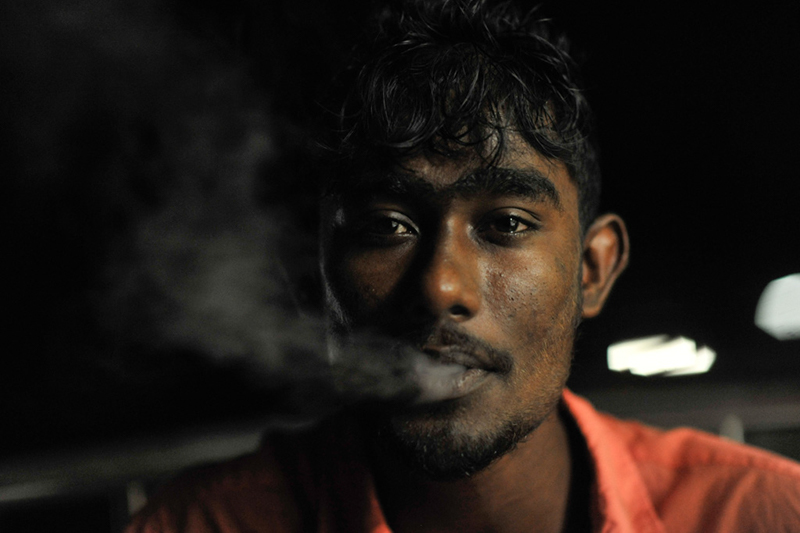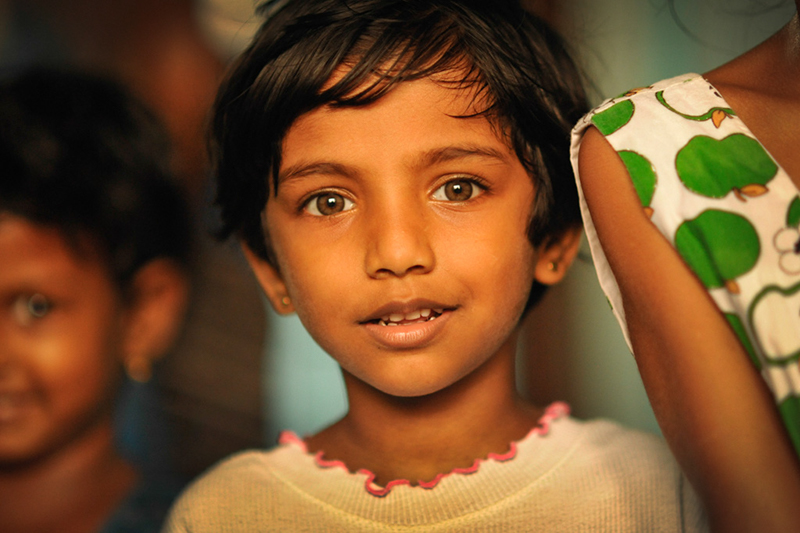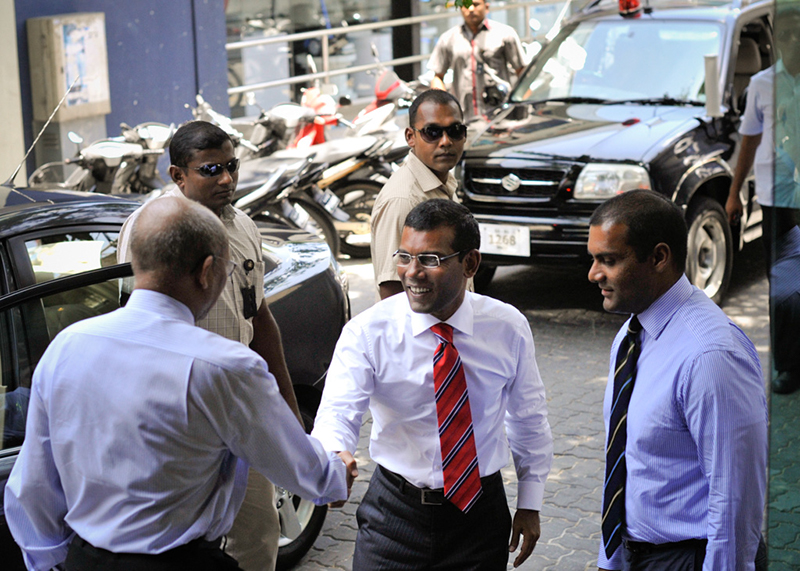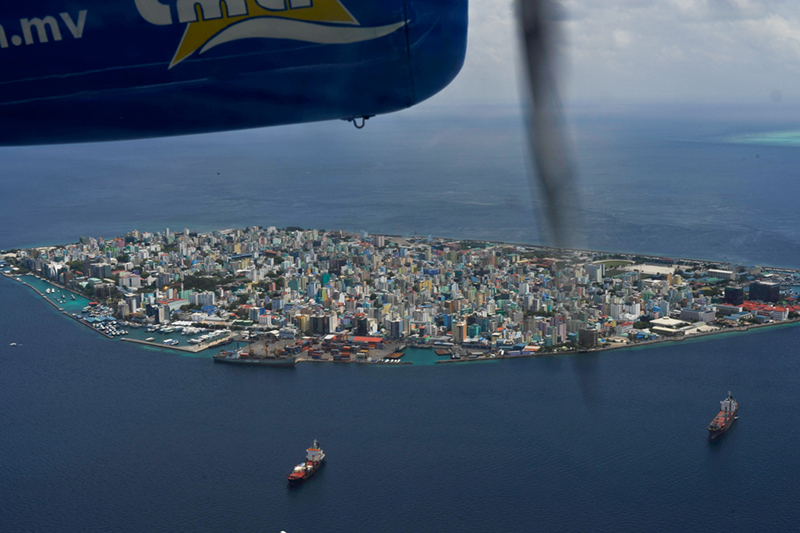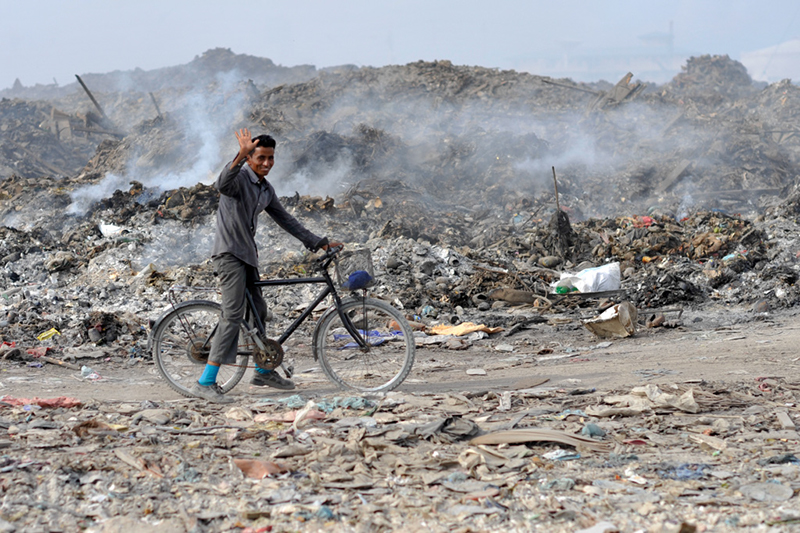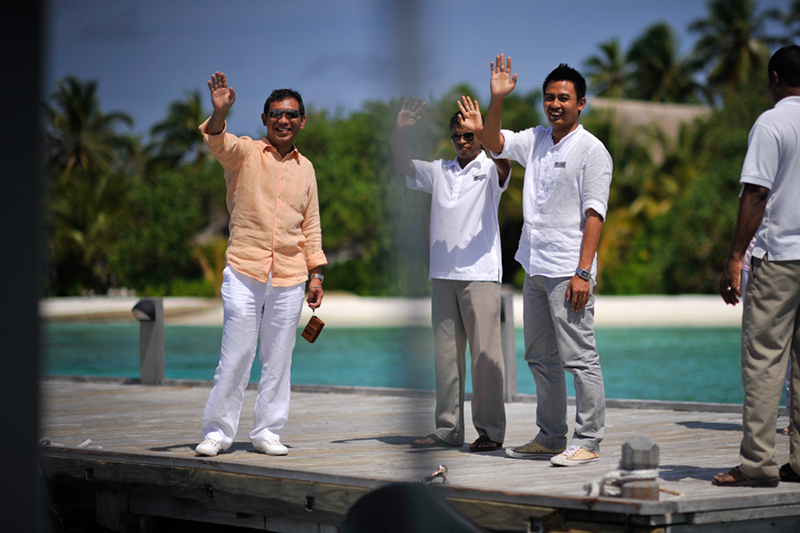5-Star Garbage (45 Images)
Forward: The following images were shot on assignment in the Maldives late 2011 while producing an article published in Januarys issue of TIME magazine, some readers may recognise one or two of the photos? Parts of this set are featured elsewhere on this site.
…subsequently the British newspaper The Daily Mail, ran a feature on an number of the images.
I make no political implication with the images. I continue to hold in high regard the politicians who have a difficult task in running a remote island nation. The images are now together in the context they were intended to be viewed.
Aerial view over a number of allots in the southern part of the Maldives Archipelago
A guest relaxes (some may know her as Amelie?) looking out over the ocean at one of the exclusive Four Seasons resorts.
The pilot secures the air taxi after transferring guests to a nearby uninhabited island for the day
The turquoise waters, white sands and blue sky’s of an uninhabited island in the Maldives
THE MALDIVES
Famed for its blue skies, white sands and turquoise waters it is easy to see why this archipelago comprised of over 1,192 islands has become a Mecca for the rich, famous and newly-wed. Situated in the Indian Ocean, the islands are grouped into 26 atolls and host the world’s most prestigious hotels.
Under the surface of five-star bliss there are problems that if ignored have the potential to destroy the golden goose.
The Air Taxi Pilot calls ahead to check the weather forecast (Yup… Fucking hot again)
A honeymoon couple wait at the jetty for a private transfer to a nearby-uninhabited island; Champagne a 6-course meal and 10 staff members await their arrival
Relaxing in the shade of numerous palm trees, guests at the resort can always make the short journey to the waters edge if the weather becomes too hot
A couple sit in the shade as they look out over the ocean in the … resort.
A common site in the Maldives the … Crain fishes at the waters edge.
An infant shark prowls for its next meal as the intended pray give an appropriately wide berth.
A bottle of champagne sits poolside awaiting the guests arrival
A bottle of wine lies discarded in the waste island of Thilafushi
Overhead view of garbage island, with trash burning for 16 years
An areal view of Thilafushi Island, once a pristine coral reef now locally known as Garbage Island. Note where is appears to have contaminates seeping into the surrounding water
A water level view of Thilafushi Island. Smoke rises from the burning rubbish, which has been on fire for the past 16 years.
Conditions for the workers of Thilafushi Island are not ideal. A man collects items for disposal in the smoke of the burning garbage.
Respiratory diseases and cancers is rife among the 3000 workers of the island
At ground level of Thilafushi Island, waste, over time becomes compacted ready to be build upon.
Some Bangladeshi workers sort the garbage into potentially recyclable piles
At the waters edge of the Thilafushi Island. When there is bad weather there is the potential for waste to be dispersed from the island and contaminate the surrounding waters
Garbage Island
Thilafushi Island or “Garbage Island” as its known locally can clearly been seen from the capital city Malé. Thick smoke rises 24 hours a day from operations.
Waste is brought in by truck and dumped onto the shallow reef, burnt and compacted. 16 years ago there was no island to speak off just pristine reef and sub-aqua life. The island now grows by 1m per day to accommodate the disposal of the five-star garbage.
In a recorded interview with the CEO of Thilafushi Corporation he states that there is no risk of contamination (leakage) to the surrounding area. Could there be the potential of an environmental problem where toxic heavy metals such as mercury, lead and cadmium are at risk of leaching out into the sea and damaging marine ecology. 3000 people live and work on Thilafushi Island; wind direction is a keen topic of conversation amongst its inhabitancies. Cancer is rife as is respiratory disease.
Through the haze a worker looks for waste for any items of value
At ground level on Thilafushi Island
At ground level on Thilafushi Island
At ground level on Thilafushi Island
Daily living conditions on Thilafushi Island
Living conditions on Cocoa Island, A water Bungalow early morning in the 5 star resort, No. 1 on Trip Advisor
An areal view of the Thilafushi Island, a clear outline of the intended shape of the island is visible in the upper part of the photo. Smoke blows over factory’s and workshops potentially endangering the inhabitancy
The logo of the corporation responsible for the safe disposal of the waste products produces in the Maldives
Anantara resort and spar, one of the most exclusive islands in the Maldives
One of the resident divers clean the windows of the underwater dinning area ready to receive lunch guests
Young Maldivians gather for an impromptu rave on an uninhabited island. Alcohol was not available, however drugs were freely consumed
Disenfranchised youth
The young population have little to aspire too. The two largest industries in the Maldives are Tourism and Fisheries; both are poorly paid and have little career potential. In recorded interviews with the Minister of Health and the Managing Director of the Malé Health Corporation both warn of the drug problem that grips the population. Official figures show that 40% of the youth take Heroin.
UNICEF (http://www.unicef.org/infobycountry/maldives_48581.html)
A technology savvy youth utilise modern communication tools including Skype, Facebook and twitter, in organising impromptu parties away from the gaze of authorities on uninhabited islands. There is no alcohol at these parties as the maldives is Muslim however ironically drugs are freely available and openly used.
Parties are hard to police with the advent of modern communication, Facebook and twitter help the young hedonists stay one step ahead of the police
Dancing continued throughout the night only stopping after sunrise the following morning
40% of the young population smoke Heroin in the Maldives. A problem that authorities are finding difficult to combat.
40% of the young population smoke Heroin in the Maldives. A problem that authorities are finding difficult to combat
Child abuse in many forms is proliferante in the Maldives figures suggesting as high at 12% of all miners being affected
Child Abuse
The ones who suffer are the kids!
Child abuse in the Maldives is incredibly high. 12 percent of Maldivian women between the age of 15 and 49 have been sexually abused.
Child abuse in many forms is proliferate in the Maldives with figures suggesting as high at 12% of all miners being affected.
The recently ousted President of the Maldives (in the red tie) arrives at a conference highlighting environmental issues in a hotel in the Maldives.
An areal view over the densely congested capital city of Malé
Sinking Malé
In the Maldives, 82 people were killed and 26 reported missing (presumed dead) after it was hit by a tsunami caused by the 2004 Indian Ocean earthquake on 26 December.
Two-thirds of the capital city Malé was flooded during the early hours of the day.
Malé is congested. It is the second most densely populated city on the planet. Due to the high water level (1m below the ground) foundations for the multiple story buildings are not as affective as the equivalent on firm ground. There is a cause for concern that when the next earthquake hits the mass of the buildings could cause the island to sink and disappear into the ocean.
A Bangladeshi worker waves goodbye from the Thilafushi Island
Staff at the Cocoa Island resort wave goodbye to guests departing to the airport.
Jamie A Cowan © shutterLIVING

